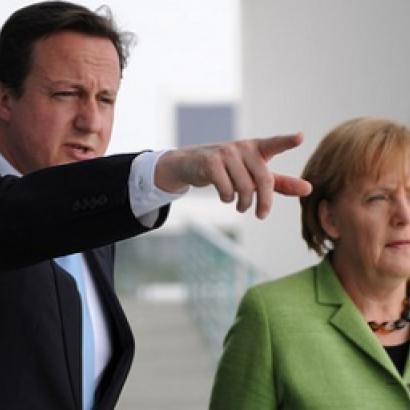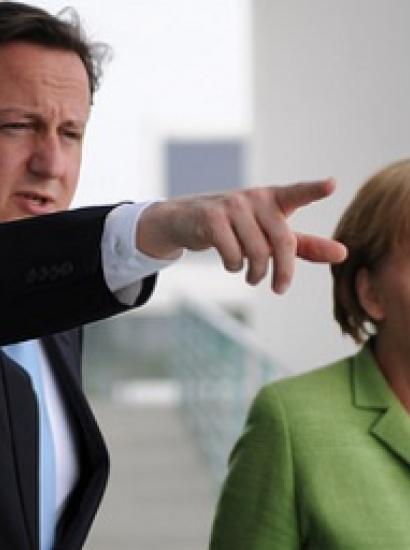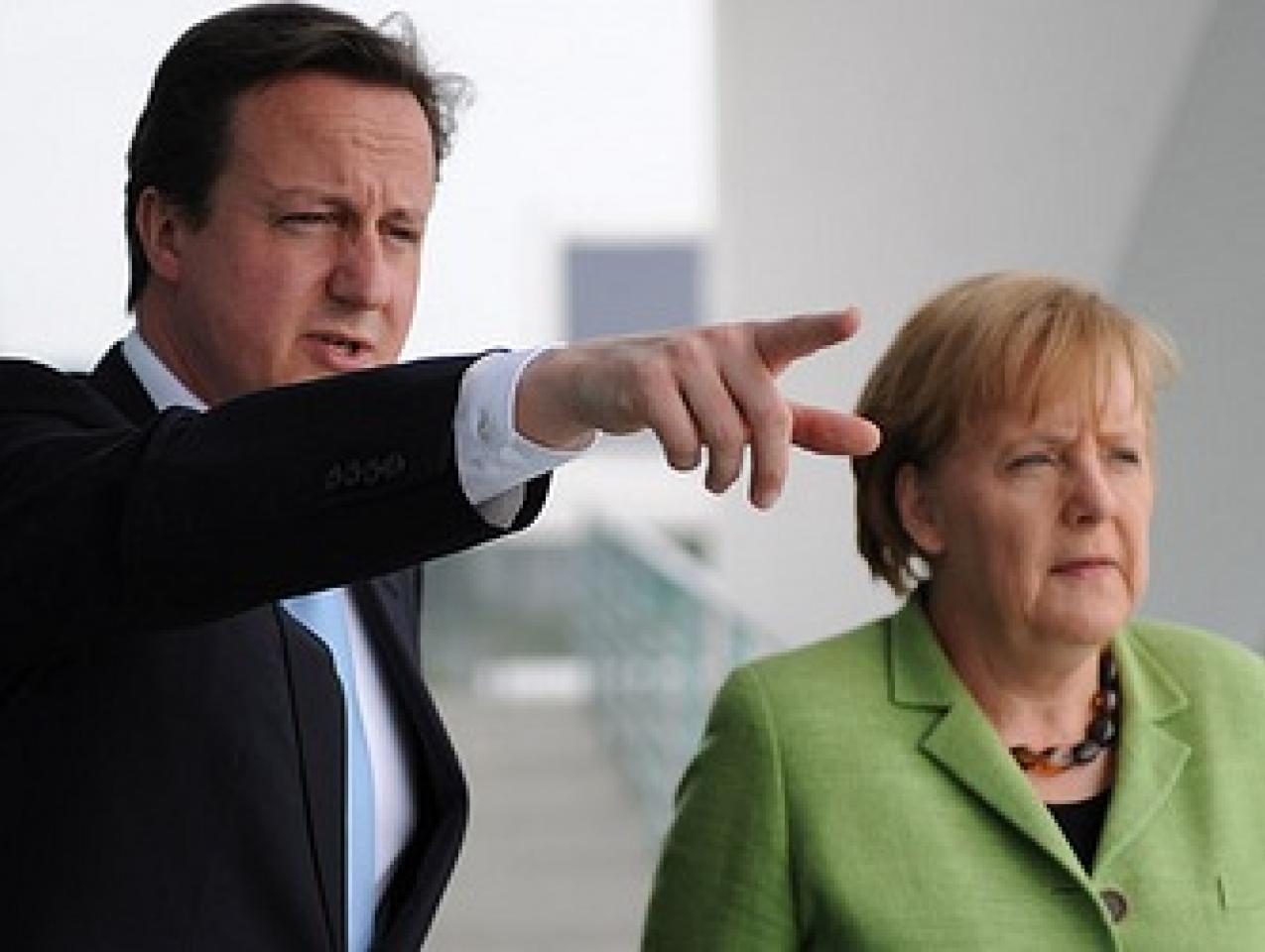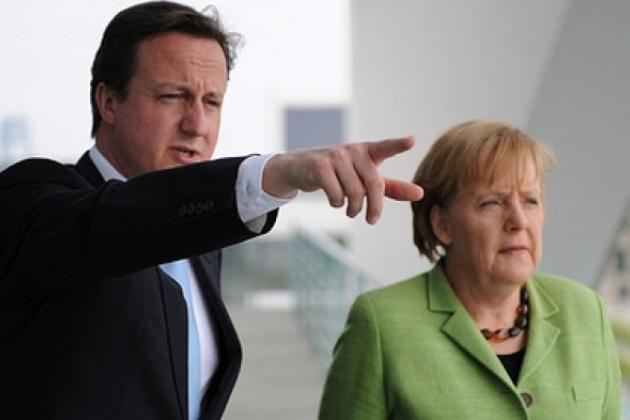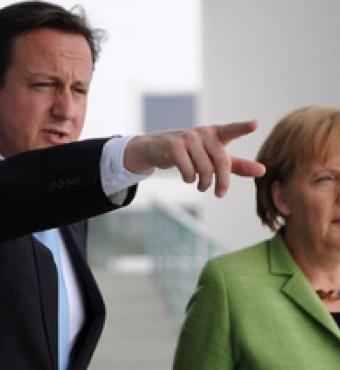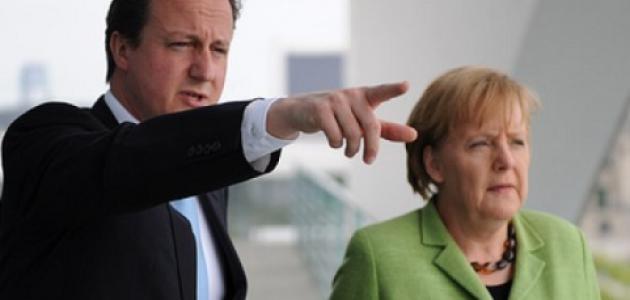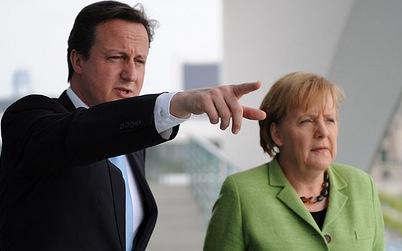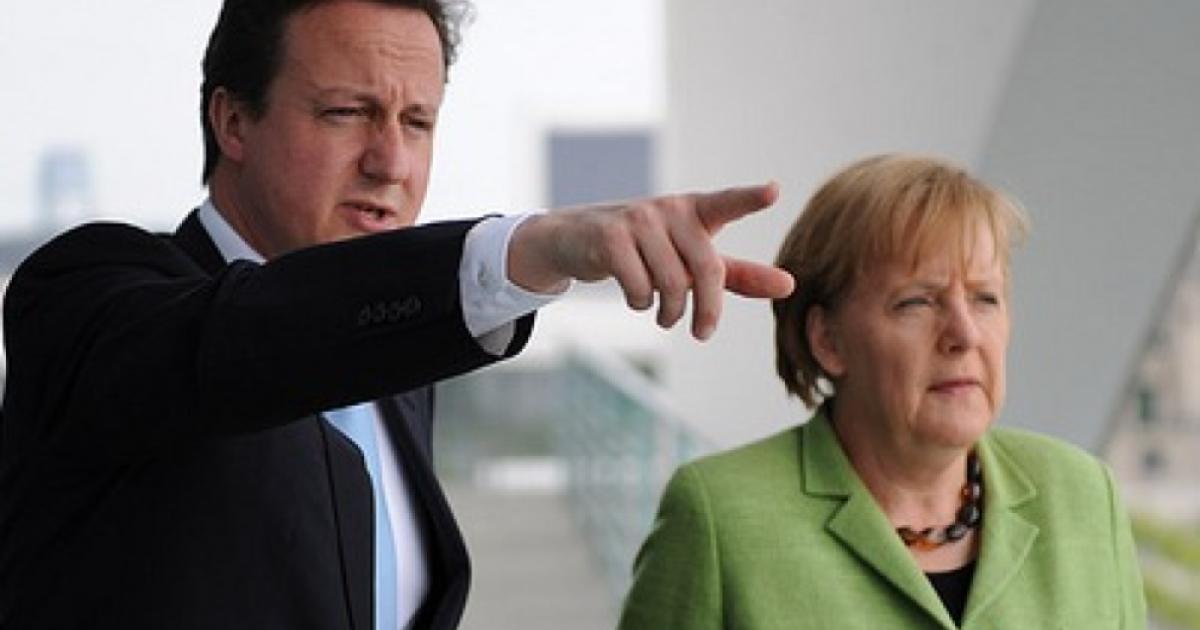- Economics
- History
- International Affairs
- US Foreign Policy
The conclusion of the Brussels summit seemed to bring the lingering crisis of the Euro and the European economies a big step closer toward a resolution. All the key players could declare victory: French President Nicolas Sarkozy has protected the large French banks from exposure to southern European sovereign debt; German Chancellor Angela Merkel has succeeded in establishing the expectation of disciplined budgeting; and even British Prime Minister David Cameron, whose principles or recalcitrance—depending on your perspective—has led to the United Kingdom’s isolation within Europe, was able to return to London to the applause of the many Euroskeptics in his party and the public at large.
Of course, in all countries, there are significant oppositional voices. The Brussels agreement has contributed to tensions within the German ruling coalition because of very realistic concerns that Germany will end up footing the bill for its spendthrift neighbors. The post-summit worries are surely most articulate in Britain, where critics fear that the UK is sliding out of the European community and toward international irrelevance.
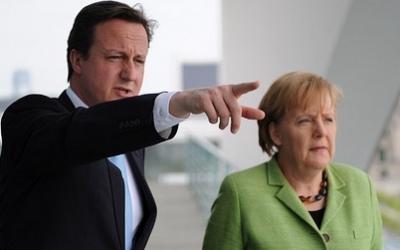
Prime Minister David Cameron and Chancellor Angela Merkel (Photo credit: The Prime Minister's Office)
Perhaps one should not make too much of those British worries: Anxieties about the strength of cross-channel ties are a long-standing part of British politics. Cameron’s refusal to sign on to the agreement is part of a tradition, which includes the refusal by his predecessor, Labor Prime Minister Gordon Brown, to support joining the Eurozone in 2008. Still, the dramatic divide that left Cameron alone in his opposition to the Brussels agreement has dominated the post-summit discussion. Is Britain genuinely moving out of Europe, and perhaps even toward a revised relationship with the United States? Only time will tell.
The summit also took on particular importance because of the financial turbulence in the lead-up to the gathering. It is worth reviewing the history of the current crisis to see how the fiscal issues have played out through competing visions of the shape of Europe. Debates over the European currency have been mediated by shifting perspectives on European geography.
The fall of the Berlin Wall in 1989, the adoption of the Maastricht Treaty in 1992, and the introduction of the euro in 2002 all pointed toward the establishment of a unified European space. Yet the ongoing fiscal crisis, beginning in 2008, has unleashed pressures that are eroding that European unity. The process began with the debt crisis in Greece, whose initial integration into the European Union had great symbolic value but whose economic health—had it been fully aired—would have probably disqualified it from joining the Eurozone.
Is the UK sliding out of the European community and toward international irrelevance?
Very quickly, similar concerns grew about the solvency of the southern European countries. Portugal, Italy, Greece, and Spain were attacked as corrupt and profligate spenders, and denounced with the unfortunate acronym, PIGS. Europe nearly split along north-south lines, and indeed one or more of the PIGS countries may yet leave the Euro and return to its devalued national currency.
Among the northern countries, the prospect that their strong economies might have to pick up the tab of the southern countries elicited opposition from budget hawks and from members of populist anti-tax parties in countries like Finland and Slovakia. But naturally, the key player was Germany, the continent’s largest economy. Under former Chancellor Gerhard Schröder, a member of the center-left Social Democratic Party, some significant reforms of the German welfare state had taken place, including reductions in unemployment benefits and a liberalization of the labor market, which made the German public even more reluctant to bankroll the generous welfare states in the south. That perceived parsimony in turn provoked anti-German hostility elsewhere. When the German Minister of the Economy, Phillip Rösler, visited Athens in October 2011 to firm up economic cooperation between the two countries, demonstrators greeted him carrying protest signs with Hitler images and swastikas on them.
Thus the initial contrast between northern and southern Europe gave way, in the course of 2011, to public concern about the emerging role of Germany. Merkel’s refusal to support proposals for “Eurobonds,” or other modalities to generalize southern European debt across Europe, encountered opposition, and not only in Greece. Commentators raised concerns about the growth of a German “hegemony,” responding to Merkel’s apparent tight-fistedness with references to World War II—as if Berlin’s refusal to assume the burden of others’ debts was somehow part of a historical strategy to take over Europe.
It's important to understand what European leaders did not achieve at the summit.
Those history lessons, drawn from another era, were of course intended to put pressure on Berlin to use its resources to solve the Euro crisis. Within Germany, conflicting responses emerged. Fiscal hawks and economic nationalists resisted the call for Germany to bankroll Europe, and they could point out the absurdity of the insinuation that Germany wanted to dominate Europe precisely by refraining from getting involved in other nations’ budgets. At the same time, however, some politicians, including former Social Democratic Chancellor Helmut Schmidt, worried aloud that Germany had begun to appear as a threat to Europe and that Merkel, therefore, should take on more responsibility for Europe.
References to the dark German past provided a way, in the newspapers of London and Paris, to put pressure on Berlin to assume responsibility for solving the European debt crisis. Yet by late November, a new act began, marked by cooperation between Paris and Berlin, as Sarkozy and Merkel, acting in tandem as “Merkozy,” planned the Brussels summit on terms that, ultimately, engineered Cameron’s isolation. A process that began with the vilification of Greece and proceeded with angst over Germany ended with the exclusion of England. Was this the new shape of Europe? Perhaps, but it would be foolish to assume that the Euro crisis has come to an end simply due to the Brussels summit.
It’s important to understand what the European leaders did not achieve. There was no indication of a shared program to promote economic growth, ultimately the only way to get out of the crisis. There was no commitment to reduce expenditures. There was no clarification of the role that the European Central Bank should play. The main accomplishment in Brussels was a preliminary agreement to begin to pursue mechanisms to control debt. Yet these rules, including Merkel’s goal of an automatic Schuldenbremse—a brake on debts—have yet to be spelled out clearly and integrated into law. In most cases, they will be subject to review by national parliaments, and the approval process will not be quick, even though the sovereign debt crisis remains urgent and the viability of the Euro is by no means assured. Bond markets have signaled considerable doubt that the Brussels summit achieved much at all.
The viability of the Euro is by no means assured.
Moreover, the proposed rules on debt, like those that had been part of the original adoption of the Euro, will surely be susceptible to abuse. Even the proposed format, intergovernmental agreements, will probably be in a legal gray zone, standing outside of and to some extent at odds with Europe’s foundational treaty. An alternative process would have involved an amendment to the treaty, but that would have required unanimity, which was precluded by Cameron’s veto. Yet if the main upshot of Brussels is itself of questionable legality—because the intergovernmental agreements have been specifically designed to circumvent an authentic ratification process—it is hardly likely that legal restrictions will prevent member states of the European Union from continuing to accumulate debt, as they have in the past. Rules like these are made to be broken.
The combination of Schuldenbremse and the isolation of the UK is disheartening for another reason. Legal constructs to limit accumulation of sovereign debt—akin to proposals for a balanced budget amendment in the United States—can cut both ways: They may limit expenditures, but they are just as likely to lead to the pursuit of more revenues through greater taxation. To that end, Cameron has sought protection from the pending imposition of a Europe-wide tax on financial transactions. That tax would have had severe consequences for the financial industry in London, which represents 11 percent of the British GDP and employs 1.3 million workers.
The British Prime Minister was unwilling to see the British economy take a hit in order to participate in the inevitably forthcoming European regulatory regime with its high taxes. Was Cameron pursuing national self-interest? Perhaps, but so were Merkel and Sarkozy, in their own ways. Nonetheless, the English Channel continues to measure the distance between the neo-liberalism of the United Kingdom and the continental preference for regulation.
An important lesson is playing out in front of American spectators to the Euro drama: When those supporting others addicted to welfare undertake to stop or reduce their support, their withdrawal of support is perceived as an act of hostility. The Germans of today cannot erase the deeds of their forebears and cannot pay unlimited tribute in penance. This will end in violence on a very large scale. Here’s hoping we are not setting ourselves up for the same confrontation.
---R. Willis Cook








